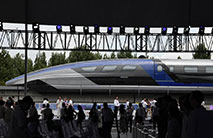Success stories of the Belt and Road Initiative in the Pacific Islands
“Despite the incessant cry of apes, the swift boat of the BRI has already sailed through thousands of hills.”
There is a splendid sight that always impresses the people of the ten Pacific states that have signed up to the Belt and Road Initiative. It is the sight of the hard-working Chinese workers who work with great dedication building our Pacific roads, bridges, sports stadiums, civic centres, schools and many other kinds of infrastructure.

Builders work at the construction site of Davuilevu residential project in Suva, Fiji, Oct. 7, 2020. (Xinhua/Zhang Yongxing)
In the hot blistering sun, the cold wind or pounding rain, the Chinese workers work humbly without complaining. It can be lonely work with a lot of hardship. We want them to know that we have great affection for them because we appreciate that they are working so very far away from their families and loved ones.
Their hard work is very deeply appreciated by Pacific islanders. It is a reflection of the indomitable spirit of the Chinese people and the symbiotic relationship with the Communist Party of China (CPC) that they can help Pacific nations in their sustainable development goals through the Belt and Road Initiative.
I know that it can sometimes be tedious because many times we read stories from the Western media and the reports seem to always be negative about the BRI. During such times I am comforted by an ancient Chinese poem that reads, “Despite the incessant cry of apes, the swift boat has already sailed through thousands of hills.”
The swift CPC boat is delivering great infrastructure projects in the Pacific and helping us to meet our sustainable development goals.
Fiji
In Fiji, I remember the large excited crowd that came together at the Suva Municipal Market (the biggest market in the South Pacific) as Fiji’s Prime Minister Voreqe Bainimarama thanked the Chinese Government and cut the red ribbon to open the Stinson Parade Bridge.The old bridge had been deteriorating for six years and could not be used. Fiji, however, did not have the money to build a new bridge.
Many vendors, tourists and local people were inconvenienced and traffic jams were a huge problem. The construction of the bridge and also the Vatuwaqa Bridge had been made possible through a very generous grant provided by the Chinese government through the Belt and Road Initiative (BRI).
When President Xi met with Pacific Leaders in Port Moresby in 2018, he told Fiji’s Defence Minister, who also served as the representative of the Fiji Government, that China was willing to work with Fiji to further promote mutual political trust, deepen pragmatic cooperation, strengthen the friendship between the two peoples and push forward their bilateral ties.
Fiji was the first Pacific Island nation to establish diplomatic relations with the People's Republic of China, having done so in 1975. Fiji’s Prime Minister had previously described Fiji's relationship with China as "wonderful," while the Fijian Parliamentary Speaker and former President, Epeli Nailatikau, had described Fiji’s "relationship with the government and the people of the People's Republic of China as one of its most important.”
The Solomon Islands
In the Solomon Islands, the China Civil Engineering Construction Corporation has been awarded a contract to build the seven China Funded facilities for the 2023 Pacific Games in Honiara City. There will be a 10,000-seat national stadium which is expected to include 1,000 VIP seats, an aquatic centre, a six-court tennis centre, a full-sized training track and a full-sized soccer & rugby field.
Other amenities provided as a gift from China include a 90-meter-by-50-meter multi-purpose hall, a 5-aside competitive hockey field and a two-story building housing a food court and office space.
The Solomon Islands Prime Minister thanked the Chinese Government and offered his regards, “Allow me first to convey my sincere gratitude to the Government of the People’s Republic of China for their wisdom in selecting a successful company that already has a footprint in the Solomon Islands. I am greatly confident that the construction period of 24 months commencing 1 May 2021 through to 31 May 2023 will be met, because the contractor has already started the preparatory work.”
The Solomon Islands formally established diplomatic relations with China in 2019 after it cut ties with the island of Taiwan.
Solomon Islands’ integration into the BRI will mean closer political and economic cooperation with China that will also benefit regional development throughout the whole region comprising the Pacific islands. China has been the largest single trading partner for the country in terms of its total trade volume.
Vanuatu
Raymond Nasse, a Vanuatu journalist noted that, “The Chinese aid differs with the Australian, New Zealand and others in that it is not given with ‘strings attached’ – China does not try and change the recipient government’s way of governing or demand that things be done their way. The other thing that makes China aid attractive is that from inception to construction, a project will be done in about 2 years, or at the request of the recipient government, sooner.” He added that “with Western-style aid a lot of the money ends up with consultants from the donor country. The Korman Stadium is a high-profile project that was a gift from the Chinese Government.
Nasse noted that the people of Vanuatu “are not used to working long hours, and this fact alone caused us to marvel at the unbelievable ability of the Chinese contractor to work day and night to complete the project on time.
Samoan Prime Minister says that BRI is not a debt trap
Samoan Prime Minister Tuilaepa had stern words for those nations that have been criticising the BRI framework as a “debt trap.” He said, “We are fortunate to have grants from China. I think all the allegations (about China’s ‘debt trap’) are based completely on a misunderstanding of the issues involved.”
Pacific governments are not being forced into signing contracts with China. There are many examples of how highways, government buildings, airports, seaports and sports stadiums are improving the quality of lives of Pacific communities. China has increased its investments and aid in the Pacific since 2006 and that has Western nations concerned. There is a view that Western powers should be rethinking their assistance programs, diplomacy and outdated policies in the Pacific. More importantly, they should be working with China to improve Pacific lives.
China has made it clear that there is no geopolitical agenda behind the BRI. Relevant parties should objectively and positively view China's relations with Pacific island nations, and earnestly abandon outdated concepts of Cold War thinking and zero-sum games while doing more to benefit the island nations' development and improve livelihoods, regional peace and stability.
China's BRI has had success among Pacific countries by providing them with sustainable economic development and helping to reduce poverty. Its success has been due to policy reforms aimed at improving debt sustainability and mitigating social and environmental risks. China has also effectively integrated the BRI with the task of tackling global warming. A World Bank analysis has even found that the BRI can potentially increase global trade by as much as 6.2 percent, and with a higher 9.7 percent boost for participating economies. Meanwhile, for low-income corridor economies, foreign direct investment is expected to increase by as much as 7.6 percent.
The author is a Policy Consultant to Fijian Government Ministries
Photos
Related Stories
- China's Shandong sees foreign trade with Belt and Road countries rise in H1
- Land-sea trade corridor connects 106 countries, regions
- Algeria to boost cooperation with China under BRI framework: president
- China's StarTimes announces short video contest to showcase BRI projects in Africa
- BRI brings western China, global businesses closer
Copyright © 2021 People's Daily Online. All Rights Reserved.










